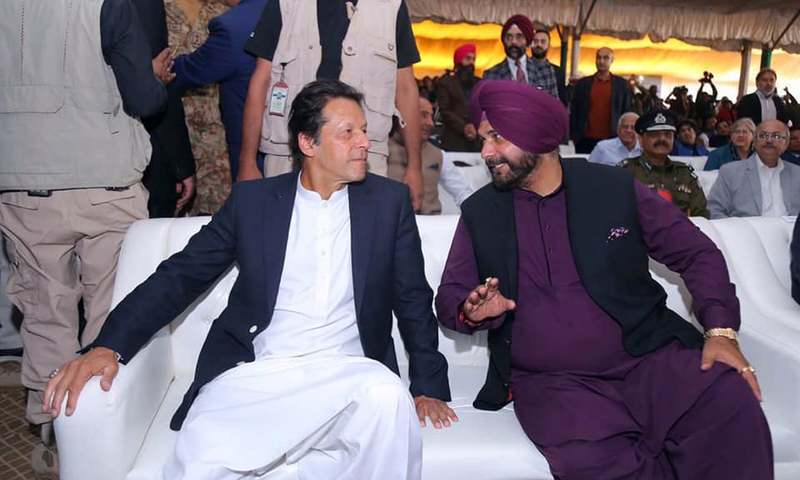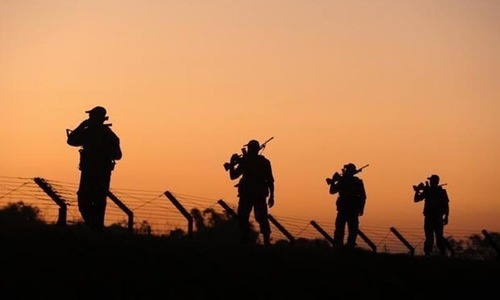In May, in most parts of Pakistan and India the ice usually melts rapidly with the punishing heat, but next year it could break instead between the two countries.
Prime Minister Imran Khan must have a good reason for believing so when he expressed the hope to The Washington Post recently that talks between the sullen neighbours could resume after the Indian elections in May 2019.
On the one hand the contest would be a referendum on Prime Minister Narendra Modi’s controversy-laden tenure, and on the other the keen fight between the rightwing ultra-nationalist establishment and a Congress-led opposition could harbour clues to the future tweaking of New Delhi’s difficult relations with its South Asian neighbours, beginning with Pakistan.
The announcement of a billion-plus-dollar Indian support to the Maldives late in the year is being seen as a diplomatic manoeuvre to keep China from gaining more influence in South Asia than it already has.
By most accounts, Mr Modi may have missed a big chance to change the discourse with Pakistan in 2018, which would have been to his benefit, even perhaps electorally, and to the region as a whole. But the opportunity to improve bilateral ties, which in turn would usher a better era of regional engagement is bound to come with or without Modi sooner than later.
Pakistan’s recent declaration that India’s involvement was needed to resolve the Afghan question comes as a new paradigm to ponder for all concerned, particularly those that have a bigger stake in a peaceful resolution of the blood-drenched conflict.
Consider also that President Trump would not want canvass support for a second term in 2020 with the baggage of American casualties and a virtual defeat at the hands of the Taliban staring him in the face. That is clearly a factor in the fresh assessment he has made with regard to Pakistan’s current and future role in ending the Afghan conflict.
Russia, China and Iran are also weighing in with that objective. India would not wish to be left out from the high table of global diplomacy already underway.
PM Khan is also understood to have hinted that a resolution to the Kashmir imbroglio may not be a distant dream, and speculation is rife about reviving the Dr Manmohan Singh-General Musharraf ‘formula’ to end the tragic stalemate in the valley.
This would inherently come with the added advantage to India of an open-arm welcome to join the economic corridor initiated by China to open up the region to myriad benefits, all packed with affirmation of a shared interest.
The business elite in India would want to agree to a favourable deal in this regard with China and Pakistan.
There is an untenable narrative that a military standoff with Pakistan helps the person in the saddle in Delhi to swing the votes. If that were so, Atal Bihari Vajpayee’s vote count would not have fallen but risen in the wake of the Kargil outing.
Similarly, Singh’s refusal to move the military against Pakistan over the November 2008 terror attacks in Mumbai should have cost him his job. Instead, he won a second term with his phlegmatic appeal that led to Sharm el Sheikh.
Prime Minister Khan has made several overtures in tandem with the military to improve ties with India, and the alacrity with which he moved on the Kartarpur corridor to ease visa-less travel for Sikh pilgrims appears to have taken Delhi by surprise.
The corridor is critical now for both sides as Sikhism’s first Guru is believed to have lived for the last 18 years of his life at the site where the Kartarpur gurdwara was built.
A needless and potentially self-defeating controversy was set off by Delhi when Navjot Sidhu, a former cricketer and a Sikh politician and a friend of Imran Khan, struck up a spontaneous accord on a visit to Pakistan with the army chief.
But perhaps the most important gesture that came from the Pakistan leader in his efforts to mend ties with India has been his reference to the Mumbai nightmare of November 2008 as an act of terrorism, which he said needs to be fully investigated in Pakistan for the country’s own good.
India on its part has repeated its calls for the prosecution of people it says were masterminds and facilitators of the attacks in Mumbai. It blames the Lashkar-e-Taiba (LeT) for the carnage, and says Pakistan had shown “little sincerity in bringing the perpetrators to justice”.
In his interview with the Post, Mr Khan said: “We also want something done about the bombers of Mumbai. I have asked our government to find out the status of the case. Resolving that case is in our interest because it was an act of terrorism.”
But he is equally aware of the fraught circumstances he is dealing with. Mr Khan, who spoke about Pakistan taking two steps for peace for every step taken by India in his first speech after his party won the general election, referred to the reasons why he believes his peace overtures had been rejected by New Delhi.
“I know, because India has elections coming up. The ruling party has an anti-Muslim, anti-Pakistan approach. They rebuffed all my overtures,” he said. “I have opened a visa-free peace corridor with India called Kartarpur. Let’s hope that after the election is over, we can again resume talks with India.”
Let’s all of us hope too.

















































